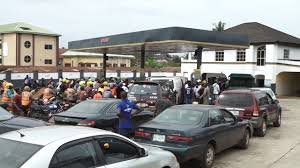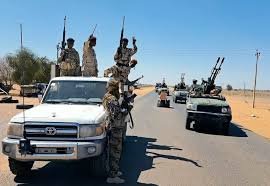Motorists and commuters in Abuja are reeling from the severe fuel scarcity that began last Thursday and persists into the new week.
The scarcity has led to a sharp increase in transport fares, with some routes seeing a 20% hike.
A survey revealed petrol prices ranging from N670 to N800 per liter, while NNPC outlets sold at N617.
Desperate motorists turned to roadside hawkers, paying up to N12,000 for a 10-liter jerry can. Traffic snarls around NNPC stations have become common as motorists queue for hours.
Commercial motorist Mustaphar Mailafiya expressed frustration, preferring NNPC’s regulated prices over exorbitant black market rates.
Several stations, including TotalEnergies in Wuse Zones 1 and 2, and Azman Oil, reported empty tanks.
Crowds thronged Saddi Kamil, Shafa, and Salbas stations along Lugbe Airport Road, with many stations like Shema Petroleum and Bovas closed or out of stock. Queues at Conoil near NNPC Tower stretched for a kilometer.
Motorist Kenny lamented, “We are fed up because we have to queue for a long time to get petrol,” while Adeyemi Folorunso criticized the situation, urging President Bola Tinubu to fulfill his promises of renewed hope.
Residents are adapting to the scarcity, with civil servant Mathias Ewaoche minimizing his car use. Adelani John noted increased fares in Lugbe, worsening the economic strain. Okada rider Guntau reported buying fuel at N3,000 for three liters and raising fares to stay profitable.
The NNPC attributed the scarcity to logistics challenges and flooding. Olufemi Soneye, the chief corporate communications officer, explained that adverse weather disrupted ship-to-ship transfers and transportation.
He assured that efforts are underway to resolve these issues and restore normal fuel supply, urging motorists to avoid panic buying.
























